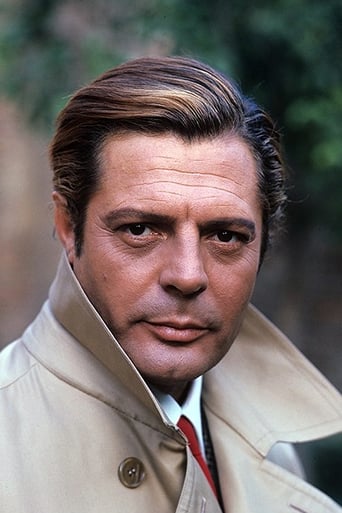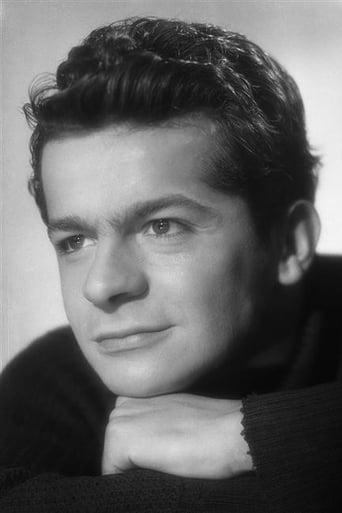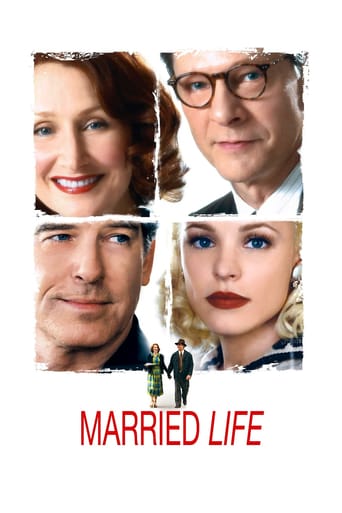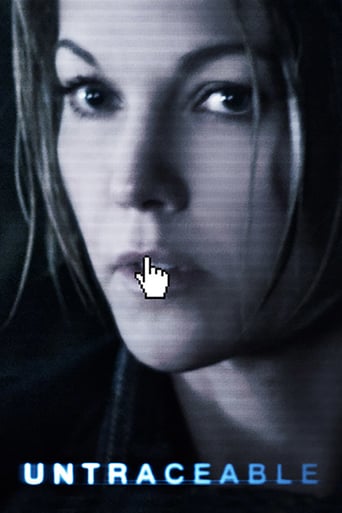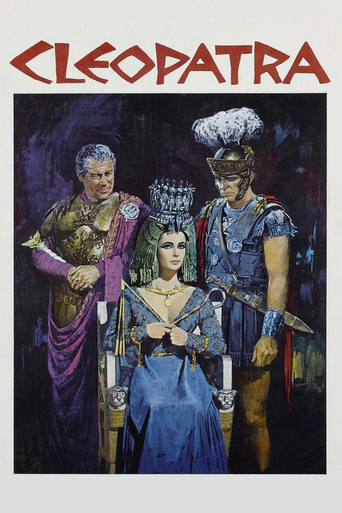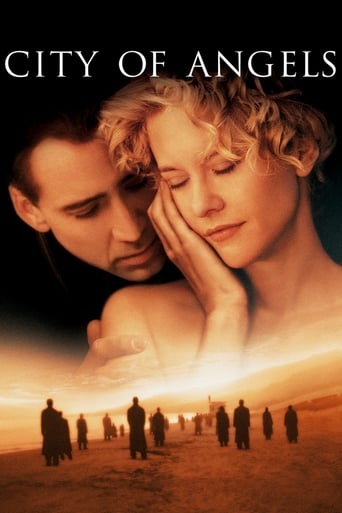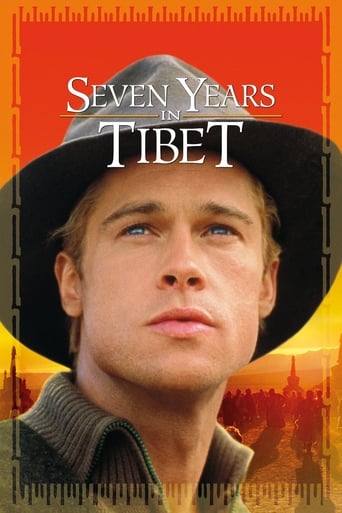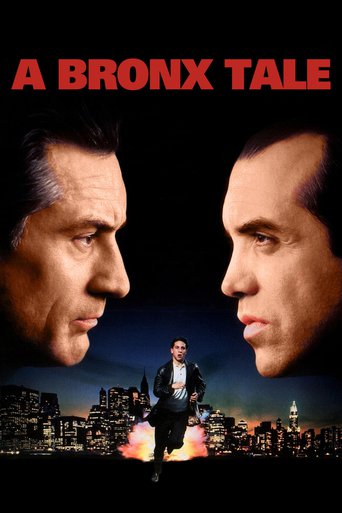
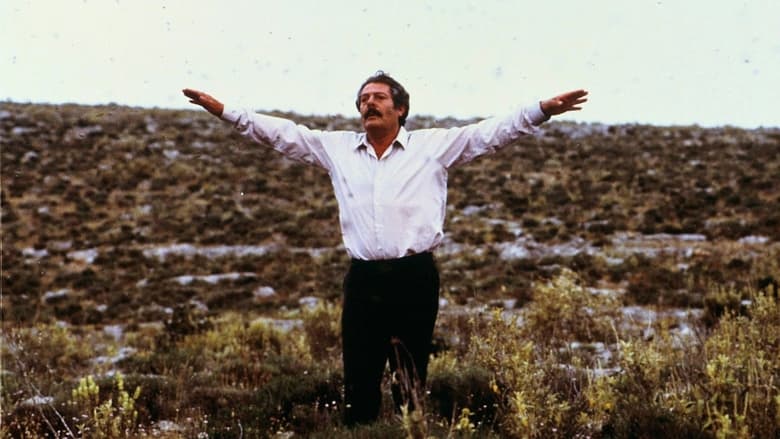
The Beekeeper (1987)
Following the wedding of his daughter, stone-faced beekeeper Spyros makes an annual journey from the north of Greece to the south, traveling along with his hives. En route, he meets an erratic, young female drifter, with whom he strikes up an unusual, self-destructive relationship.
Watch Trailer
Cast


Similar titles
Reviews
hyped garbage
Good movie but grossly overrated
It’s an especially fun movie from a director and cast who are clearly having a good time allowing themselves to let loose.
An old-fashioned movie made with new-fashioned finesse.
This is the second film I have seen by Theo Angelopoulos and it is slow paced and introverted where much is implied, little is said and the interior lives of the characters are depicted mostly through symbol and metaphor. The plot is straightforward: An elderly man, Spyros, makes his annual spring time trip through Greece in order to cultivate his hives. During the journey he meets a young woman who attaches herself to him and the film charts their fractured journey and relationship.Spyros comes from a long male line of bee keepers who made similar journeys to the one he undertakes and over the opening credits we hear narrated a story of the hives spoken by an adult male to a male child. The story tells of the virgin bees that are kept captive their entire lives as any one of them could be a queen. It is a sad story because the female bees can never escape their imprisonment much as a person cannot escape their fate. The tale tells also of the drones that perform a ritualised dance in the presence of the queen bee who selects one to fertilise her nest. The tale is beguiling and sad and we learn later that Spyros's wife, Anna, selected him from one of three suitors suggesting she was a queen bee and him a drone.The film begins on the first day of an unusually cold spring, with snow on the ground, at the wedding of one of Spyros's daughters. The wedding scenes are amongst the most beautiful in the film; long slow pans over people in a blue room with white light. These early scenes could be a series of paintings. After the wedding we learn that Spyros and Anna are separating about which both are sad and it is in this spirit that Spyros begins his annual voyage.At his first port he picks up a young girl who is hitchhiking. She tells him 'no one is looking for me'. As they journey we glimpse scenes of the two of them together, largely illustrating her antics, Spyros's bee keeping and his occasional visit to friends and places he has frequented on previous journeys. Spyros is intrigued and troubled by his companion who appears oblivious to him and his feelings. A song that she dances to and is repeated later in the soundtrack has the line 'all by myself I'll try to make it, I'll do it my way'. The song is striking and ugly, and discordant with the rest of the soundtrack. The irony is that neither Spyros or the girl is happy alone and neither is forging an individual existence: Spyros is repeating a family pattern and the girl, who never has a name, represents a type of rootless and needy young woman.Things do not end well for Spyros or his bees. This is foreshadowed in the song of the pepper tree that Spyros sings early on and then hears as a memory when he returns to what was his childhood home. The journey becomes a descent into sorrow with his meetings a series of goodbyes along the way, the most poignant of which is with his other daughter. I agree with others who suggest the film has the flavour of a Greek tragedy made modern.The film is beautifully shot and Greece looks simultaneously seedy and quaintly exquisite. It is a difficult film because of the feelings it evokes and the demands it makes on the viewer. The acting is particularly good and Marcello Mastroianni is amazing as Spyros. He inhabits his role so completely that it seemed I was watching Mastroianni the man and not the actor. I found myself drawn to his character and enjoy films that show older people and their lives. I don't understand the film entirely or the relationship depicted between Spyros and the girl and I fear such understanding might prove elusive on future viewings. Even so I felt the need to write something about it just as I felt the urge to play the opening scenes again when the film ended. Would I recommend it? Yes, if you are patient and have imagination.
This film didn't really work for me. After reading the, mostly, wonderful accolades above I was expecting better things from this movie but finished up being disappointed. It wasn't the inactivity either. I like Bella Tarr films so I am used to long takes with not very much happening. Another reviewer of a Tarr film recently noted that you could write a masters thesis on what is not going on, in between the bits of dialog. Okay, this is kind of cutesy but I know what he meant. There is a tension or at least a relationship between the characters and sometimes a "drama of the moment" in the "what will happen next", sense. With the Spyros character there was the feeling that during his moments of stoic inactivity (of which there was a lot), there was nothing going on inside. It was just a complete blank-out, no drama; no tension from silent inner feelings directed towards another, just nothing. The same scene could have been shot to equal effect without him being there. I was waiting for someone to come up to him and shout "Hello in there", in Greek of course or to give him a much needed kick in the seat of his pants. Whilst I am on the subject of pants, I would have reckoned that someone with a grown up son and two grown up daughters would have at least known that you have to open them in order to have sex. Any spotty teenager on his maiden voyage would not have acted in such an inept way. All the incidents except one in this film happened to Spyro not because of him. That one was when he drove his wagon through the front of a restaurant in order to get the girl and that came over as more of a student prank than an act of desperation.But, hey, I hear you say, this is a film that deals with the problems of loneliness and isolation and I should be more sympathetic to his situation. I understand this point of view however it is difficult to empathize with someone who has turned his back on a wife that obviously still had feelings for him; a family he could draw round him but who are now indifferent to him and friends throughout the country who he leaves at the first opportunity. Even the girl, who was selfish, never really did anything bad towards him. Spyro had no warmth within him and never did anything to gain respect. In the end even his beloved bees turned against him.In my opinion the high ranking Artificial Eye distributor has scored an own goal with this one but the enthusiasm of others will probably vindicate them.
"The Beekeeper" (1986) is Theo Angelopoulos' seventh film and features leading man Marcello Mastroianni. The minimal and meaningless plot (following the disintegration of his family, a beekeeper embarks on a trip and has an on/off affair with a young girl) is an excuse for Angelopoulos to indulge in his trademark semi-poetic images of Greek rural and urban landscapes.A few of the sequences stick out, but most are unremarkable (and there's too much deja-vu about them, all Angelopoulos films are pretty much the same). There is very little action, very little dialog, too much boredom, too much doodling. This is the definition of pretentious art-house pomp.
I cannot go for long without returning to Angelopoulos. He is,for me, quite simply, the world's greatest living director. His films generally home in on a single theme and explore it with a profundity without equal in contemporary cinema. In "Landscape in a Mist" it is the quest for the Deity. In "Ulysees Gaze" he studies the man who would put Art before human considerations. In "The Beekeeper" he considers the destructiveness that can arise if the male menopause gets out of control. His characters are constantly standing on an abyss. Either they fall like the director in "Ullyses" or they are redeemed like the children in "Landscape". Spiros (Marcello Mastroianni at his finest) is a recently retired schoolteacher who sublimates an empty future in the temporary respite of a journey with his bees to find a spring climate where they will flourish at the end of a long winter. The opening of "The Beekeeper" is masterly. We learn everything we need to know about Spiros's loneliness and the emptiness of his family relationships by observing the party that follows his daughter's wedding. It is a quiet affair at the family home. Very few words are spoken but glances particularly between Spiros and his wife tell of a lack of communication and infinite sadness. There is a moment of pure magic when the daughter catches sight of a bird in the room which neither we nor any of the other characters see. She tries unsuccessfully to catch it during which time seems to stop still as it does when people in a street in "Landscape" stand motionless looking up at falling snow. It would be misleading to suggest that the rest of "The Beekeeper" sustains the level of inspiration of its first 20 minutes. Compared with "Landscape", "Ulysses" and "Eternity and a Day" the situation is static rather than developmental. A girl hitchhiker foists herself on Spiros. At first he tries to shake her off. She is after all a rather selfish, empty headed tart, who at one point even encourages a young soldier to have sex with her in a seedy hotel room which Spiros is forced to share with her. Eventually Spiros himself seduces her in a clapped out old cinema where they are spending the night. It is an act neither of love or lust but one born of the desperation of a middle-aged man trying to regain something of his lost youthful virility. The result is self-disgust and a terrible suicide of death by stinging. The only assertive creatures in Angelopoulos's despairing world are the bees.


